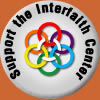Ritualizing Returning Home
Beyond Memorial Day:
Understanding the Hidden Wounds of War
April 26, 2012
Orinda, California
Pagans are much taken with ritual. As with all, or at least most, religious practitioners, we perform rituals we’ve learned in our training. We also create new rituals, or adapt familiar ones, for specific purposes. We draw from many of the customs of our ancestors all over the world and we blend these with more contemporary techniques and themes to suit not only particular occasions but also to customize them for specific individuals and the work, often healing work, that we do.
In addition, we recognize the importance of doing things with our bodies, not just in our heads, as a way of engaging with the world. This is especially important when folks have been engaged in something as physical as combat. Ritual is a physical way to engage with the spiritual and psychological realities of returning home
We offer some suggestions here for support and inspiration in all of our work to reintegrate our military sisters and brothers into our communities. Some may be obvious to you, things you may customarily do. Others may be unfamiliar. Perhaps articulating these ideas will inspire you in your work with your congregations.
- Cleanse and Release: Using one or more of several methods, we welcome the returning serviceperson by cleansing her or him. We may use sage or another purifying incense. We may use water, salt water, scented water, anointing oil. We speak, chant or sing words while we do this, or we may perform these acts in silence, or with the rhythm of drumming or a droning sound. Performing acts of ritual cleansing can help release the burdens of war both energetically and symbolically.
Such acts may be preceded by the literal laying aside of arms (although the arms themselves may be symbolic. For instance, one may cleanse, polish, and sheathe a sword, even though he or she didn’t use a sword in battle.
The clothing of the returnee may be changed. He or she may wish to remove the uniform and redress in civilian clothing. Others may prefer to clean their uniforms, polish their brass, and re-don the uniform that has been rededicated to another use, such as keeping the peace.
- Support and Welcome Home: Next we welcome the veteran home. One individual may speak words of welcome on behalf of the entire congregation or community. But it’s better, more effective, more meaningful, if this welcoming is done by each person one by one, extending a personal face-to-face, eye-to-eye, hand-to-hand, heart-to-heart welcome to the returnee. This series of acts can be done in the context of a circle or spiral dance, with music and/or chanting and/or drumming. Flowers may be exchanged, or flower petals strewn around.
- Expression of Thanks for Service: It’s easy to say, “Welcome home. Thanks for your service.” These words bear repeating from time to time, and by different people. Other ways to articulate our gratitude are the planting of a memorial tree, the engraving and installation of a plaque, bench, garden gate, or other lasting physical acknowledgement of the person’s service to the greater community. A shared feast, or perhaps a specially decorated cake, always brings people together in camaraderie and fosters fellowship.
Circle Sanctuary, a Pagan organization based in Wisconsin, bestows a Pagan service ribbon on all veterans of whatever military conflicts. Your religious institution may have symbols – pins, ribbons, armbands, pendants or other jewelry – that can be presented to your returning veterans.

We hope that hearing of some of the ways Pagans use ritual to restore returning veterans and their families, to heal them of their spiritual, psychic, and emotional wounds, may be helpful to others.
M. Macha NightMare (Aline O’Brien)
© 2012

